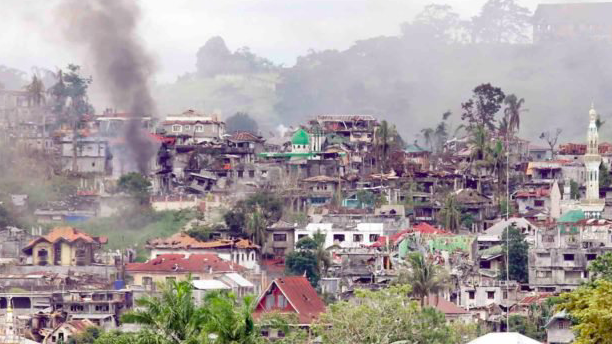
The Islamic State (IS) claimed more attacks in the Philippines than in any other country outside Iraq and Syria.
Global think tank, the Terrorism Research and Analysis Consortium (TRAC) made the claim in a report entitled “Considering Claimed Attacks: Islamic State’s Hidden Narrative”. It said that of 222 global terror attacks claimed by IS, 99 were in the Philippines.
The report examined all attacks from May 20 to September 22, this year.
The Philippines is distantly trailed by Afghanistan (43 claims), and Egypt (33 claims) in the list of 21 countries attacked by IS.
All the Philippine attacks took place in Mindanao, apart from one – the Resorts World Manila shooting.
Of the terror attacks in southern Philippines, 70 happened in Marawi City, where a five-month war against homegrown terrorists and foreign jihadis has recently been won by government forces.
The report pointed to a sharp increase in IS-claimed attacks in the Philippines: IS did not claim any attacks in the same period in 2015, and claimed only six last year.
Most of the assaults claimed by IS, the report said, were encounters in the Marawi battle area which varied from sniping a soldier to initiating a jailbreak.
“Claims in Philippines alone took the Islamic State brand to a new level of perceived global capabilities and effectiveness,” the report read.
The study pointed out that since IS had begun losing ground in Iraq and Syria, Marawi became a “beacon and option for supporters globally”.
“For the siege of Marawi, IS central provided some fighters and funding as well as instruction via tactics of urban warfare. But all strategies and operations came from native Filipinos and Malaysians based in the South Philippines,” the report read.
The siege was the brainchild of the Maute group, a family-centred terror group based in Marawi.
The report also warned that IS influence still can’t be underestimated.
It was through IS that the Maute group learned how to utilise social media, such as by spreading propaganda videos on Facebook.
“Therefore, Marawi was at once a testament to the power of the IS global communications network in its own right, and at the same time, a prime example of IS dependence on local groups and conditions,” the report reads.
“The future of the ISIS brand in the Philippines depends largely on the locals – the interests and aspirations of both the Muslim public and entrenched power brokers, such as autonomous [Moro Islamic Liberation Front] commanders.”
